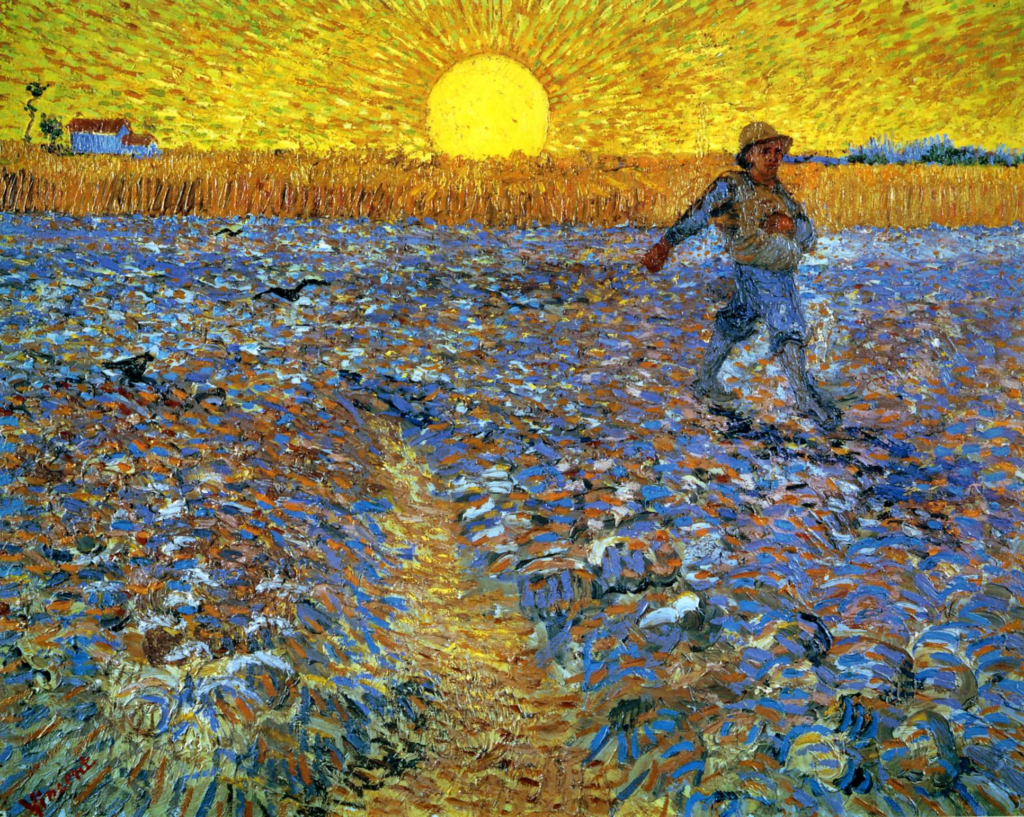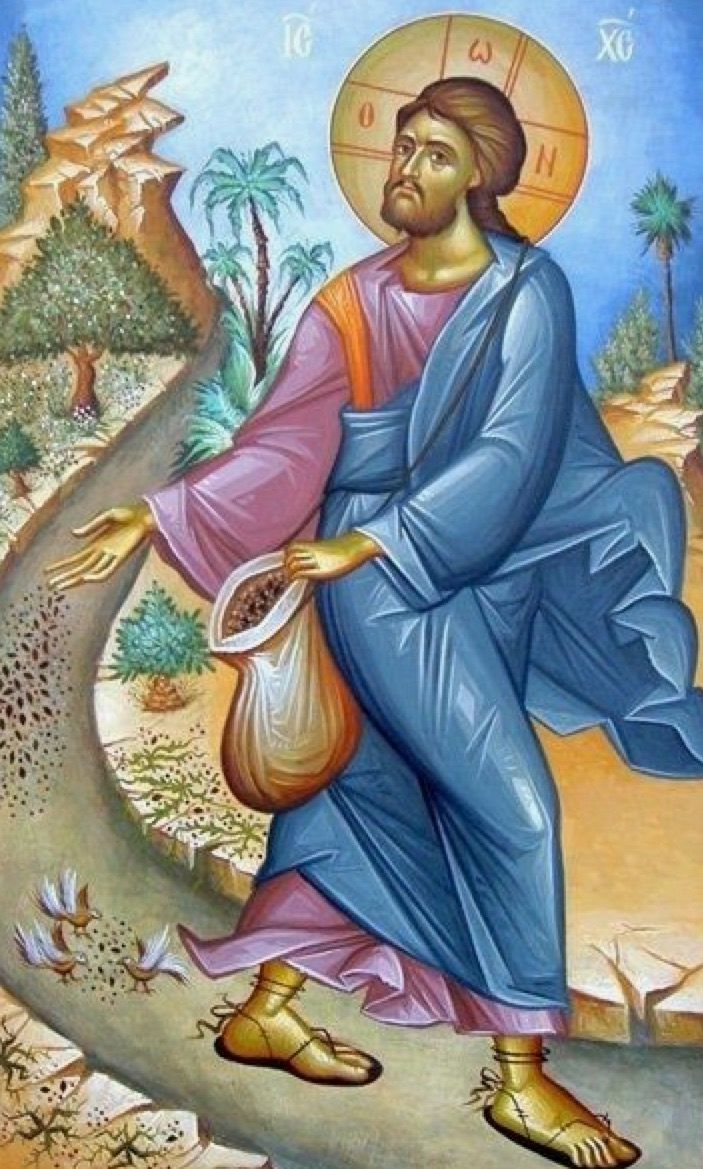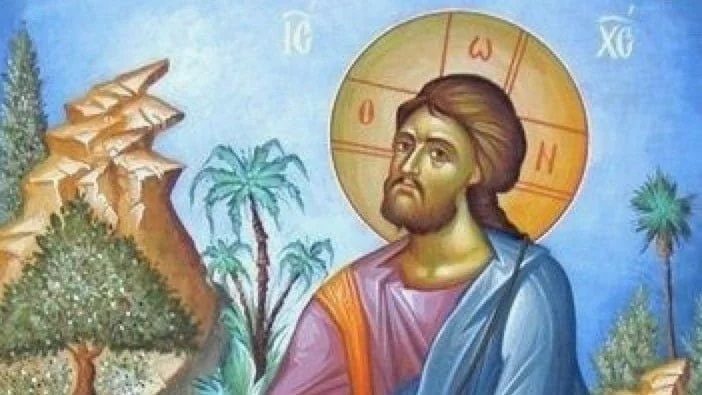15th Sunday in Ordinary time Year A
REFLECTION ON THE PARABLE OF THE SOWER.
THE NECESSITY OF HAVING THE PROPER DISPOSITIONS TO RECEIVE GOD AND HIS WORD.
Summary vid + full text.

OUTLINE
- Summary of ideas of today’s readings
- The necessity of having the proper dispositions so that God’s grace would bear fruit in us.
- To accept Christ, hear His Word is not enough. It is necessary to put it into practice no matter the difficulties it may entail.
1. Summary of ideas of today’s readings
In the first reading (Is 55:10-11) rain is compared to the word that comes from the mouth of God which waters the earth making it fertile and causing the seed to germinate. God will fulfill his plan and bring it to its fruition through His Word, Our Jesus Christ.
In the Gospel which recounts the Parable of the sower (Mt 13: 1-23), God’s Word is compared to the seed which is sown by Christ through the preaching of His Church and his disciples. “The seed is the word of God, Christ is the sower; all who come to him will live for ever (Alleluia)”
- However, for this seed to germinate, grow and bear fruit, it must be sown in a fertile ground: “The seed that falls on good ground will yield a fruitful harvest (Resp. Psalm).”
It is worthwhile to suffer the consequences of living the demands of our Christian life for in the end, with God’s grace and our correspondence, we will arrive at the full manifestation of the glorious freedom of the children of God (2nd reading: Rom 8:18–23)
2. The necessity of having the proper dispositions so that God’s grace would bear fruit in us.
The parable of the Sower shows us how God’s grace and revelation can be received in different ways, depending on man’s correspondence to His grace.
- What Jesus says in the Parable underlines man’s responsibility to be ready to accept God’s grace and to respond to it. Jesus’ reference to Isaiah (Mt 13:14-15) is a prophecy of that hardness of heart which is a punishment meted out to those who resist grace.
- The soil refers to man’s dispositions in accepting Christ and his teachings. God cannot save us if we do not correspond to his grace and put our own part and hence the necessity of having the proper dispositions so that God’s grace would bear fruit in us.
“The seed fallen on the path stands for those who hear the message of the Kingdom of God but do not understand it; thus the evil one comes and snatches it away. Indeed, the evil one does not want the seed of the Gospel to sprout in the heart of man… The second is that of the seed fallen among the stones: this represents the people who hear the word of God and understand it immediately, but superficially, because they have no roots and they are unsettled; and when trials and tribulations arise, these people give up immediately. The third case is that of the seed fallen among the briars [thorns]: Jesus explains that this refers to the people who hear the word but they, because of the cares of the world and the seduction of riches, are choked. Finally, the seed fallen on fertile soil represents those who hear the word, accept it, cherish it and understand it, and they bear fruit. The perfect model of this good soil is the Virgin Mary. (Pope Francis, Angelus address, July 13, 2014).”
- Man’s indifference, superficiality and worldliness may lead to the seed of God’s word to germinate but it will eventually, or wither and die, or be carried away by the winds of frivolity, materialism and hedonism. Hence, we must always strive to have good dispositions, being docile to His Word, put our own part, if Christ’s life were to grow and bear fruit in us.
“And we can ask ourselves: how is our heart? Which soil does it resemble: that of the path, the rocks, the thorns? It’s up to us to become good soil with neither thorns nor stones, but tilled and cultivated with care, so it may bear good fruit for us and for our brothers and sisters.
And it will do us good not to forget that we too are sowers. God sows good seed, and here too we can also ask ourselves: which type of seed comes out of our heart and our mouth? Our words can do much good and also much harm; they can heal and they can wound; they can encourage and they can dishearten. Remember: what counts is not what goes in but what comes out of the mouth and of the heart. (Pope Francis, Angelus address, July 13, 2014).”
3. To accept Christ, hear His Word is not enough. It is necessary to put it into practice no matter the difficulties it may entail.
To accept Christ, hear His Word, is not enough. It is necessary to put it into practice no matter the difficulties it may entail.
- These difficulties are varied: a neo-pagan environment where materialism, hedonism and individualism seem to have the upper hand such that man’s priorities are inverted wherein that which is useful and pleasant (money, sensible pleasures, material goods…) are given more importance than what is morally good.
- In some cases, there is a sincere desire to follow Christ but inconstancy, laziness or the anxieties of life itself prevent one from doing so.
Dear brethren in Christ, let us ask God, through the intercession of Mother Mary, “the perfect model of the good soil,” for the grace of docility to receive Christ and His Teachings through His Church and His instruments, and for the fidelity and perseverance to put into practice His Word, live our Christian faith and bear fruits of holiness and apostolate, arriving at the glory of the freedom of the children of God.
PHOTO CREDIT: VAN GOGH, The sower and the setting sun in https://malcolmguite.files.wordpress.com/2015/10/the-sower-sower-with-setting-sun-1888.jpg; https://buddyhowarddotme.files.wordpress.com/2013/04/image.jpg;
Stay updated: subscribe by email for free TO OUR NEW WEBSITE www.catholicsstrivingforholiness.org (PUT YOUR EMAIL IN THE SUBSCRIBE WIDGET).
We are also in www.fb.com/Catholicsstrivingforholiness. Kindly help more people in their Christian life by liking our page and inviting your family, friends and relatives to do so as well. Thanks in advance and God bless you and your loved ones! Fr. Rolly Arjonillo


